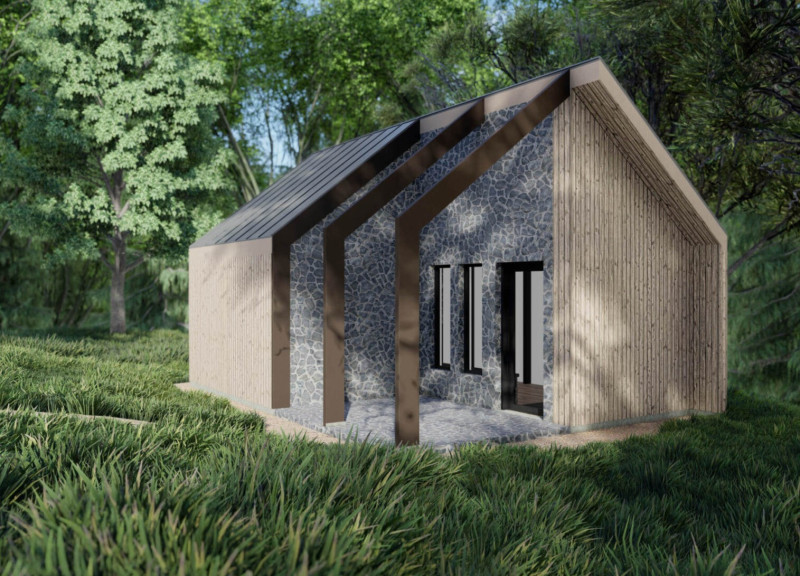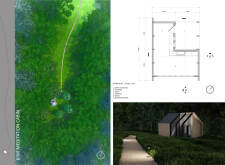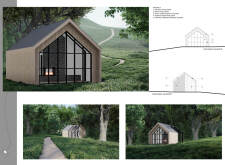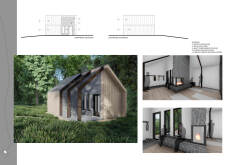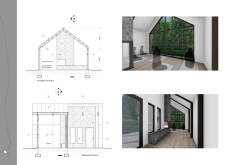5 key facts about this project
The architectural design features a strong emphasis on materiality, utilizing sustainable elements that enhance the overall aesthetic and ecological footprint. A combination of vertical wood siding and rough-finished stone integrates the structure with its environment while offering durability. The heavy timber beams and columns not only provide structural support but also contribute to a warm, inviting atmosphere. The standing seam metal roof is designed for longevity and efficient weather management, ensuring the cabin remains a reliable sanctuary.
Unique Design Approaches
A significant aspect of the Kiwi Meditation Cabin is its thoughtful integration of pathways that lead visitors on a journey towards the structure. This design element focuses on the act of transition, allowing users to mentally prepare for their meditative experience. The entryway features an open courtyard that serves as a buffer from the outside world, creating a preparatory space before entering the meditation room.
The interior layout revolves around a spacious meditation area, designed to maximize natural light through the use of extensive glazing. This connection to the exterior aids in fostering mindfulness among participants. A two-way fireplace is centrally positioned, providing warmth and contributing to the calming atmosphere of the cabin.
Key Elements of the Design
The design incorporates specific elements that enhance its function and appeal. The stone altar and benches in the meditation room create dedicated areas for contemplation and practice. The spatial organization promotes an easy flow between the various functions of the cabin while maintaining distinct zones for focused activities.
The choice of materials plays a vital role, particularly in how they interact with light and the environment. The combination of wood and stone creates a tactile experience that aligns with the project’s goal of encouraging introspection.
The Kiwi Meditation Cabin serves as a model for effective architectural design that emphasizes both functionality and environmental integration. To explore architectural plans, sections, and designs related to this project, please review the detailed presentation of the Kiwi Meditation Cabin for a comprehensive understanding of its design ideas and approaches.


